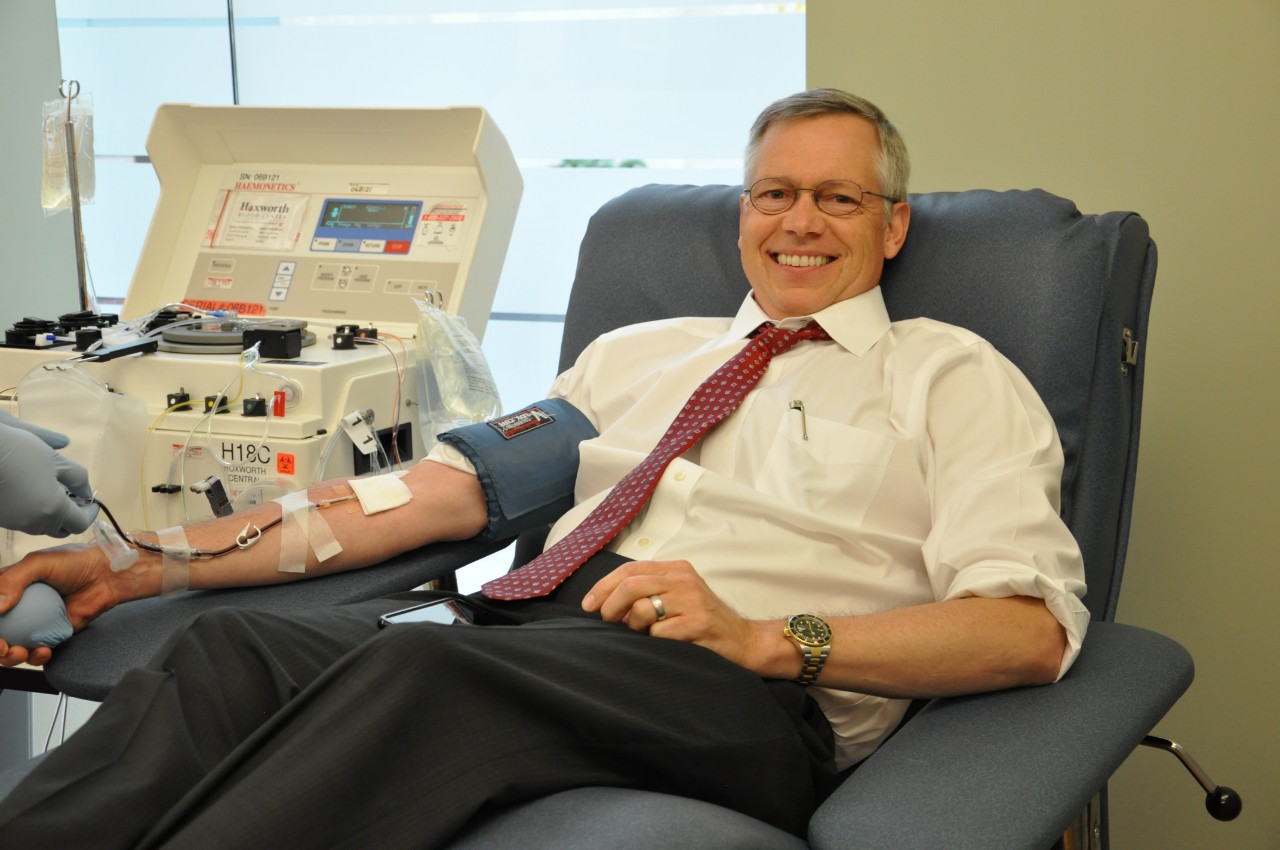Art Pancioli
UC Physician Donates 100th Unit of Blood And Hopes Others Will Join Him
As Chairman of the department of Emergency Medicine at the University of Cincinnati College of Medicine, Dr. Arthur Pancioli, M.D. is keenly aware of just how crucial it is to have blood products on the shelf and readily available to help local patients. That’s why he has been a staunch supporter of blood donation for the past twenty years.
His commitment is apparent and even measureable—in fact, he donated his 100th unit of blood in May of 2017, and has donated over 12 gallons. Dr. Pancioli recently spoke with Hoxworth Blood Center in the hopes of alerting the community to the need for blood and encouraging his peers in the medical profession to roll up a sleeve.

“In our line of work, we can’t do without blood,” Dr. Pancioli said during his 100th donation. “This is a commodity that we can’t manufacture, and it HAS to be available. Therefore, it is incumbent on all of us to make the effort and make it available.”
Dr. Pancioli was a casual donor as a young man, donating a few units during medical school. After a few years working in emergency medicine, however, he made a commitment to become a regular blood donor.
“I donated here and there when I was younger, but I realized after a few years that I am a healthy guy, and there was no reason for me NOT to donate,” he recalled. “How could I justify not going once every 8 or 9 weeks?”
Since then, Dr. Pancioli has strived to donate whenever he is eligible. A 12-gallon donor, he wears his Hoxworth gallon pin on his lapel as a way of identifying his commitment to donating.
He’s even turned donating into a family affair. “I used to bring my kids with me to watch. My two sons have started donating now,” he said. “They give when they can, because they grew up watching me donate, and they think, ‘This is just what I should do.’”
But while Dr. Pancioli has already instilled the value of blood donation in his children, he’s trying to encourage other members of the medical profession to follow his lead and give when they can.
“We use the product, we see the need and the good it does for our patients,” he said. “And we can’t manufacture it, so it’s on us. Donating is so easy, it doesn’t hurt, and doesn’t take long. We HAVE to do it!”
“And truly, you never know when it’s going to be you or your family that needs it,” he added. “We in the medical profession need to take that seriously.”
Thank you, Dr. Pancioli, for your commitment to saving lives in our community—and here’s to another 100 donations in your future!